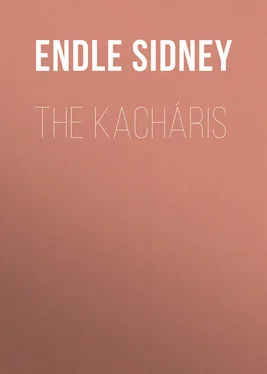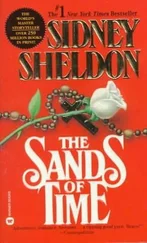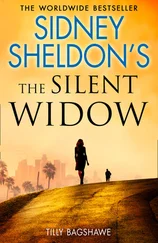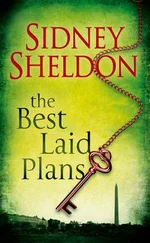Sidney Endle - The Kacháris
Здесь есть возможность читать онлайн «Sidney Endle - The Kacháris» — ознакомительный отрывок электронной книги совершенно бесплатно, а после прочтения отрывка купить полную версию. В некоторых случаях можно слушать аудио, скачать через торрент в формате fb2 и присутствует краткое содержание. Жанр: foreign_antique, foreign_prose, на английском языке. Описание произведения, (предисловие) а так же отзывы посетителей доступны на портале библиотеки ЛибКат.
- Название:The Kacháris
- Автор:
- Жанр:
- Год:неизвестен
- ISBN:нет данных
- Рейтинг книги:5 / 5. Голосов: 1
-
Избранное:Добавить в избранное
- Отзывы:
-
Ваша оценка:
- 100
- 1
- 2
- 3
- 4
- 5
The Kacháris: краткое содержание, описание и аннотация
Предлагаем к чтению аннотацию, описание, краткое содержание или предисловие (зависит от того, что написал сам автор книги «The Kacháris»). Если вы не нашли необходимую информацию о книге — напишите в комментариях, мы постараемся отыскать её.
The Kacháris — читать онлайн ознакомительный отрывок
Ниже представлен текст книги, разбитый по страницам. Система сохранения места последней прочитанной страницы, позволяет с удобством читать онлайн бесплатно книгу «The Kacháris», без необходимости каждый раз заново искать на чём Вы остановились. Поставьте закладку, и сможете в любой момент перейти на страницу, на которой закончили чтение.
Интервал:
Закладка:
Sidney Endle
The Kacháris
INTRODUCTION
It is with some diffidence that I comply with Colonel Gurdon’s request that I should add a few words of preface and explanation to the last literary work of an old friend and pastor, whose loss will long be lamented in the Assam Valley, where he laboured as a missionary and planter’s chaplain for upwards of forty years. Mr. Endle’s interest in his Kachári flock was that of an evangelist rather than that of a linguist or ethnologist, and this preoccupation has coloured his style and affected the matter of his book in a way that, however pleasant and natural it may seem to those who had the privilege of his acquaintance, may perhaps require a few words of explanation for the benefit of those who look for anthropology only, or linguistics, in his pages.
My first duty, then, is to say a few words about the author’s life and character. Sidney Endle was born about 1840 at Totnes in Devon, of sturdy yeoman parentage. His grandfather was, it seems, proud of being an armiger, and it is a family tradition that many Endles figured in the ranks of the Catholic clergy of the West country. Mr. Endle was educated at Totnes Grammar School, under the Rev. James Powney, and early conceived a wish to enter the ministry of the Church of England, and serve abroad as a missionary. With this view he entered St. Augustine’s College at Canterbury. Unfortunately the College seems to have kept no written record of the dates at which one of the most distinguished and devoted of its pupils entered and left its roof. It was in February, 1864, however, that he was sent by the Society for the Propagation of the Gospel to Tezpur, in Assam, to be the assistant of Mr. Hesselmyer, then in charge of the Kachári mission at that place. In 1865 he was ordained deacon by the Bishop of Calcutta, and in the following year he was admitted to priest’s orders. Soon after he was transferred to the independent charge of the S.P.G. mission among the tea-garden coolies at Dibrugarh in Upper Assam. In 1869, on Mr. Hesselmyer’s death, Mr. Endle was made chaplain of the important tea-planting district of Darrang, with the charge of the Kachári mission in that district, having his head-quarters at Tezpur. His pastoral duties were thus two-fold. On the one hand, he became the pastor of an European community scattered over an area some 100 miles in length by 30 or 40 in breadth. It was his duty to gather his flock round him at some convenient tea-garden, or at the pretty little rustic church at Tezpur itself, where his congregation included the small band of officials. He was everywhere welcome, and it was not long before he was as popular as he was respected. One of the most unworldly and simple of men, almost an ascetic in his personal tastes and habits, he could sympathise with and understand men whose training and ideas were different from his. He had a native shrewdness and quiet sense of humour which stood him in good stead in his dealings with men probably as varied in their origins and temperament as are to be found in any collection of Englishmen beyond the seas. His sermons – and he could preach with equal ease and eloquence in English, Assamese, and Kachári – were ever those of a man who to shrewd observation of the various life about him, native and European, added an unwavering devotion to the responsibilities of his calling. Authoritative, and even stern, he could be when he thought it needful to assert his responsibility as a priest. But, somehow, the occasion rarely occurred, since his was not the disposition that demands impossible perfection of ordinary human nature. There was no touch of intolerance in his gentle and (there is no other word to describe him) saintly nature. I think he would have liked to have it said of him that, like Chaucer’s Parson,
He was a shepherd and no mercenerie,
And though he holy were and vertuous,
He was to simple men not dispitous,
Ne of his speech dangerous ne digne,
But in his teaching discrete and benigne.
Innumerable were the marriages and christenings he celebrated in all parts of Assam, and it was characteristic of the man that he regarded it as a duty to keep himself informed of the welfare, spiritual and physical, of the children he held at the font. During his rare visits to England he endeavoured when he was not busy preaching for his mission, to visit those whom in their infancy he had admitted to his Church. Few chaplains in India can have been so universally popular and respected as he was, and this without in any way relaxing from the dignity which, in his case, belonged rather to his sacred office than to any consideration for his own person.
But he made no secret of the fact that his heart was chiefly in his missionary work among his beloved Kacháris. The Bodos of the Kachári dwars (the dwars or “doors” of the Kachári plains are the passes that lead into the rough mountains of independent Bhutan) are, like most of the aboriginal races of Assam, cheery, good-natured, semi-savage folk; candid, simple, trustful, but incorrigibly disrespectful according to Indian notions of good manners. To a casual observer, they may well have seemed incapable of comprehending the gentle reserve and unaffected unselfishness of their pastor’s nature. Among them, however, it was his delight to unbend, and give way to the almost boyish simplicity and sense of fun which to the last were among his most engaging traits. When Mr. Endle approached a Kachári village during one of the prolonged preaching tours which were to him at once a duty and the keenest of pleasures, he was always greeted with a joyous and often noisy welcome. He travelled on foot, and the villagers would turn out to see the gāmi-nī-brai , the “old man of the village,” as they affectionately called him. He was often cordially invited to share in the village festivities, and it was an interesting sight to watch him seated in the midst of rough semi-savage folk, listening to the tale of their simple joys and sorrows, enjoying their primitive jokes, and, when occasion served, talking to them, as probably no one else will ever be able to talk to them again, of the matters nearest to the missionary’s heart.
In all parts of the Kachári country, Mr. Endle established many village schools, served by trusty converts. But his chief pride was in the church he built at Bengbari, which, to his great joy, was consecrated by Bishop Milman in person. Under its thatched roof has now been placed a tablet to the memory of its founder.
No account of Mr. Endle’s life, however brief, would be complete without a mention of the fact that in 1875 he married Miss Sarah Ewbank Chambers, who for twenty years shared his pastoral anxieties. Mrs. Endle was much respected by the European community throughout Assam, and her sudden death in Calcutta in 1895 was universally regretted. How sorely her husband felt her loss, not even those who knew him best were allowed to guess, but it was plain that, from this time onwards, much of his old elasticity of mind and body deserted him, and though he continued his work with unabated industry the effects of age began for the first time to be apparent to his friends. In 1884 Mr. Endle compiled his well-known manual of the Kachári language, published by the Assam Secretariat Press. From time to time he contributed papers on the subject of the Bodo people to the Transactions of the Asiatic Society of Bengal. In 1891 he was elected an Honorary Fellow of St. Augustine’s College, in recognition of his linguistic studies and of his eminence as a worker in the mission field. In 1906 he was offered a canonry by the Bishop of Calcutta, but characteristically refused a dignity which might have involved absences from his missionary duties.
Читать дальшеИнтервал:
Закладка:
Похожие книги на «The Kacháris»
Представляем Вашему вниманию похожие книги на «The Kacháris» списком для выбора. Мы отобрали схожую по названию и смыслу литературу в надежде предоставить читателям больше вариантов отыскать новые, интересные, ещё непрочитанные произведения.
Обсуждение, отзывы о книге «The Kacháris» и просто собственные мнения читателей. Оставьте ваши комментарии, напишите, что Вы думаете о произведении, его смысле или главных героях. Укажите что конкретно понравилось, а что нет, и почему Вы так считаете.











